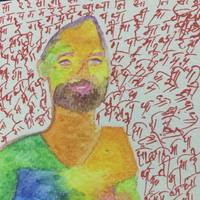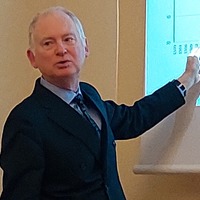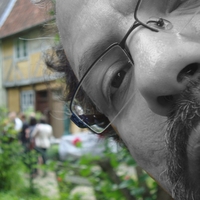
Francesca Vella
I was born and raised in Italy, where I studied Art, Music and Performing Arts at the University of Florence and piano at the Scuola di Musica di Fiesole, before moving to the UK to complete an MMus and a PhD at King’s College London. Before joining Northumbria, I was a Junior Research Fellow (St John’s College) and a British Academy Postdoctoral Fellow (Faculty of Music) at the University of Cambridge. I’ve also taught at Oxford Brookes, Goldsmiths and Bristol.
My research considers histories and technologies of operatic performance across the 19th and early 20th centuries. I’ve published articles on Giuseppe Verdi and Italian nation-building, operatic mobility, vocal celebrity culture, and early radio. My first monograph, Networking Operatic Italy (University of Chicago Press, 2021) explores how networks of opera production and critical discourse enabled by new transport and communications technologies shaped Italian cultural identities during the years immediately preceding and following the country’s unification in 1861. I’m currently working on an article on the critical language of operatic staging (at the intersection with cinema) at the 1930s Maggio Musicale Fiorentino, and on a new book about staging and the visual arts in early twentieth-century Italy.
My growing interest in sonic and auditory cultures has led to the establishment of the ‘Sounding (Out) 19th-Century Italy’ research network (2019-20), funded by a British Academy Rising Star Engagement Award. I was also a founding member of the Leverhulme network ‘Re-imagining italianità: Opera and Musical Culture in Transnational Perspective’ (2016-19), based at UCL and with collaborators at Cambridge, Brown University and Universidade Estadual de Campinas.
My research considers histories and technologies of operatic performance across the 19th and early 20th centuries. I’ve published articles on Giuseppe Verdi and Italian nation-building, operatic mobility, vocal celebrity culture, and early radio. My first monograph, Networking Operatic Italy (University of Chicago Press, 2021) explores how networks of opera production and critical discourse enabled by new transport and communications technologies shaped Italian cultural identities during the years immediately preceding and following the country’s unification in 1861. I’m currently working on an article on the critical language of operatic staging (at the intersection with cinema) at the 1930s Maggio Musicale Fiorentino, and on a new book about staging and the visual arts in early twentieth-century Italy.
My growing interest in sonic and auditory cultures has led to the establishment of the ‘Sounding (Out) 19th-Century Italy’ research network (2019-20), funded by a British Academy Rising Star Engagement Award. I was also a founding member of the Leverhulme network ‘Re-imagining italianità: Opera and Musical Culture in Transnational Perspective’ (2016-19), based at UCL and with collaborators at Cambridge, Brown University and Universidade Estadual de Campinas.
less
Related Authors
Matthew Rahaim
University of Minnesota
Katherine Butler Schofield
King's College London
Gregory Hanlon
Dalhousie University
Ruben López-Cano
Escola Superior de Música de Catalunya
David Seamon
Kansas State University
Egil Bakka
Norwegian University of Science and Technology
Colin Quigley
University of Limerick
Timothy D Taylor
University of California, Los Angeles
Stephanie Seul
University of Bremen
Marcus Mota
Universidade de Brasília - UnB
InterestsView All (20)









Uploads
Books by Francesca Vella
In "Networking Operatic Italy", Francesca Vella reexamines this much-debated topic by exploring how, where, and why opera traveled on the mid-nineteenth-century peninsula, and what this mobility meant for opera, Italian cities, and Italy alike. Focusing on the 1850s to the 1870s, Vella attends to opera’s encounters with new technologies of transportation and communication, as well as its continued dissemination through newspapers, wind bands, and singing human bodies. Ultimately, this book sheds light on the vibrancy and complexity of nineteenth-century Italian operatic cultures, challenging many of our assumptions about an often exoticized country.
Academic articles by Francesca Vella
I argue that “mobilizing” the 1871 _Lohengrin_, by resituating it within a less stationary framework than the one in which it has traditionally been set by scholars (i.e., late-nineteenth-century Bologna), allows us to recover an as-yet-unexplored form of operatic interplay between late-nineteenth-century Italian cities: a type of material interaction that is often lost to modern scholarly accounts, which emphasize networks of discourse and local resistance to the nation’s unifying impulses after 1861. I also suggest that the _Lohengrin_ transfer anticipated trends that would take root in subsequent years (during the 1870s and 1880s), when full-blown opera productions started to go more regularly on the move. After pursuing _Lohengrin_’s relocation, I thus turn to a number of these later transfers, reading them alongside and via the technological apparatus of the railway. Referred to by Italian contemporaries as _trasferimenti_ or _trasporti di spettacolo_, these early mobile productions lay bare conflicting attitudes to movements that held varied aesthetic, political, and technological implications. Besides revealing key tensions between mobility and immobility, as well as oldness and newness, railway operatic mobility during this period lends itself to probing questions of mediation: questions that underlay both the changing status of opera at the _fine secolo_, and notions of sound reproduction that were emerging around the same time.
Reviews by Francesca Vella
Conference Papers & Talks by Francesca Vella
In "Networking Operatic Italy", Francesca Vella reexamines this much-debated topic by exploring how, where, and why opera traveled on the mid-nineteenth-century peninsula, and what this mobility meant for opera, Italian cities, and Italy alike. Focusing on the 1850s to the 1870s, Vella attends to opera’s encounters with new technologies of transportation and communication, as well as its continued dissemination through newspapers, wind bands, and singing human bodies. Ultimately, this book sheds light on the vibrancy and complexity of nineteenth-century Italian operatic cultures, challenging many of our assumptions about an often exoticized country.
I argue that “mobilizing” the 1871 _Lohengrin_, by resituating it within a less stationary framework than the one in which it has traditionally been set by scholars (i.e., late-nineteenth-century Bologna), allows us to recover an as-yet-unexplored form of operatic interplay between late-nineteenth-century Italian cities: a type of material interaction that is often lost to modern scholarly accounts, which emphasize networks of discourse and local resistance to the nation’s unifying impulses after 1861. I also suggest that the _Lohengrin_ transfer anticipated trends that would take root in subsequent years (during the 1870s and 1880s), when full-blown opera productions started to go more regularly on the move. After pursuing _Lohengrin_’s relocation, I thus turn to a number of these later transfers, reading them alongside and via the technological apparatus of the railway. Referred to by Italian contemporaries as _trasferimenti_ or _trasporti di spettacolo_, these early mobile productions lay bare conflicting attitudes to movements that held varied aesthetic, political, and technological implications. Besides revealing key tensions between mobility and immobility, as well as oldness and newness, railway operatic mobility during this period lends itself to probing questions of mediation: questions that underlay both the changing status of opera at the _fine secolo_, and notions of sound reproduction that were emerging around the same time.